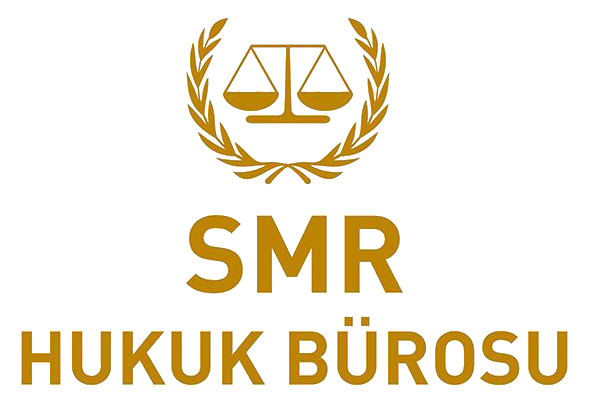Mediation is the most widely known and applied dispute resolution method among the amicable dispute resolution methods today. In this context, you can go to a mediator after a dispute arises between you and the other party, but before applying to the court or arbitration, or you can go to a mediator after filing a lawsuit with the court. However; Mediation is only possible in matters that the parties can decide with their free will. To put it more clearly; Parties may go to mediation in matters that do not concern public order and are suitable for enforcement. Mediation is not possible in matters that the parties cannot contract, for example, in criminal cases, in civil registration cases or in cases related to the custody of children.
By resorting to mediation, you do not waive your right to sue, the process is entirely voluntary. The parties are completely free to apply to a mediator, to continue the process, to conclude and to abandon this process. You can end this process, which you started with your own will, and apply to the court.
WHAT ARE THE ADVANTAGES IN AGREEMENT WITH THE MEDIATION METHOD?
- You will save time that you will have to make during the lawsuit (such as postal expenses, expert, discovery, etc. expenses, travel expenses) and limit your other works due to the trial and allocate to the courthouse.
- It takes less time than the court.
- The outcome is under the control of the parties.
- The future is discussed, it is essential to protect the interests, not the current legal situation.
- Reliability and confidentiality are important; The parties can easily talk here that they cannot speak in front of the court.
- The psychological and sociological risk is low; creates fewer new problems.
- The method and solution style agreed by the parties are fundamental and flexible.
- It is resolved by agreement; both sides win, the social and economic relations of the parties continue.
In this respect, mediation as an alternative dispute method is much more economical in terms of both time and money compared to judicial activity, and it is a process that both parties gain in terms of sociological and psychological results.
In this process, we, as SMR Law Firm, provide both the attorneyship of our clients and voluntary mediation services with our expert mediator staff working under the Registry of the Department of Mediation.
To give examples:
- Employee-employer disputes
- Compensation and receivables arising from copyrights
- Debtor-creditor relationship
- Insurance, responsibilities, compensation and receivables arising from cooperative law
- Property regime, liquidation, division of property and participation receivable
- Alimony claim
- Rental receivables and eviction
- Damage compensation
- Disputes arising from the construction contract in return for flat
- Fulfillment
- Transfer and return of movable
- Dispute arising from consumer law
- Family law (disengagement)
- Ecrimisil - compensation and claims arising from interference and copyrights
- Settlement of compensation dispute
- Other cases (on matters that do not concern public order and are suitable for enforcement)
- Share transfer
- Disputes arising from contracts
- Inheritance division
- Elimination of partnership
- Evacuation
- Deed cancellation and registration
- Exercising the right of pre-emption
- Immovable partition
- Disputes arising from condominium ownership
- Transfer of real estate
- Leaving a commercial partnership
- Prevention of wrongful seizure - reinstatement
- Material and moral compensation
- Disputes with foreign element
- Participation recievement
- Movable refund
Sıkça Sorulan Sorular
Bir avukatla ilk görüşmenizde aşağıdakileri bekleyebilirsiniz:
Tanışma: Avukat kendilerini tanıtacak ve davanızdaki rolünü açıklayacaktır.
Hukuki meselenizin tartışılması: Davanızın ayrıntılarını avukatınızla görüşme ve aklınıza takılan tüm soruları sorma fırsatına sahip olacaksınız. Bu görüşme sırasında mümkün olduğunca açık ve dürüst olmanız önemlidir çünkü bu, avukatın durumunuzu anlamasına ve size en iyi tavsiyeyi vermesine yardımcı olacaktır.
Yasal sürecin açıklaması: Avukat, yasal süreci ve davanız ilerledikçe neler bekleyebileceğinizi açıklayacaktır. Bu, potansiyel sonuçların ve ortaya çıkabilecek risklerin veya zorlukların tartışılmasını içerebilir.
Ücretler ve faturalama: Avukat, gerekli olabilecek tüm peşin maliyetler veya avans ücretleri dahil olmak üzere ücretlerini ve faturalandırma uygulamalarını sizinle görüşecektir.
Sonraki adımlar: Avukat, süreçteki sonraki adımları ve nasıl ilerleyebileceğinizi tartışacaktır. Bu, takip randevuları ayarlamayı veya daha fazla bilgi toplamak için belirli eylemleri gerçekleştirmeyi içerebilir.
Her avukatın farklı olduğunu ve avukatınızla olan deneyiminizin davanızın özelliklerine bağlı olarak değişebileceğini unutmamak önemlidir. Bununla birlikte, genel olarak, avukatınızın endişelerinizi dikkatle dinlemesini ve nasıl ilerleyeceğiniz konusunda size açık, özlü tavsiyeler vermesini beklemelisiniz.
Bir davanın bir avukatla karara bağlanması için geçen süre, davanın niteliğine ve görüldüğü hukuk sistemine bağlı olarak büyük ölçüde değişebilir. Bazı vakalar nispeten hızlı bir şekilde çözülebilirken, diğerlerinin çözülmesi yıllar alabilir. Bir davanın çözüme kavuşturulma süresini etkileyebilecek faktörler, söz konusu yasal sorunların karmaşıklığını, kanıtların ve tanıkların mevcudiyetini, tarafların mahkeme dışında anlaşmaya istekli olmalarını ve hukuk sisteminde birikmiş davaları içerir. . Belirli bir davanın çözülmesinin ne kadar süreceğini tahmin etmek genellikle zordur, ancak deneyimli bir avukat, benzer davalar ve hukuk sistemi hakkındaki bilgilerine dayanarak, davanız için olası bir zaman çizelgesi hakkında size bir tahminde bulunabilmelidir.
Kendinizi mahkemede temsil etmenin hem artıları hem de eksileri vardır. Potansiyel artılardan bazıları şunları içerir:
Maliyet: Kendinizi temsil etmek, bir avukat tutmaktan daha ucuz olabilir.
Kontrol: Kendinizi temsil ederseniz, davanızın sonucu üzerinde daha fazla kontrole sahip olabilirsiniz.
Bilgi: Davanızdaki yasal konular hakkında iyi bilgi sahibiyseniz, kendinizi daha rahat temsil edebilirsiniz.
Bununla birlikte, dikkate alınması gereken birkaç potansiyel dezavantaj da vardır:
Yasal bilgi eksikliği: Yasal prosedürlere aşina değilseniz, davanıza zarar verebilecek hatalar yapabilirsiniz.
Zaman: Kendinizi temsil etmek zaman alabilir ve önemli miktarda çaba gerektirebilir.
Stres: Yasal bir konuyu ele almak stresli olabilir ve kendinizi temsil etmek bu stresi artırabilir.
Sonuç: Kendinizi temsil ederseniz, özellikle deneyimli bir avukatla karşı karşıyaysanız, istediğiniz sonuca ulaşamayabilirsiniz.
Kendinizi mahkemede temsil edip etmeyeceğinize karar vermeden önce tüm bu artıları ve eksileri dikkatlice değerlendirmeniz önemlidir. Bunun sizin için doğru karar olup olmadığından emin değilseniz, daha fazla tavsiye almak için bir avukata veya adli yardım kuruluşuna danışmak isteyebilirsiniz.
Davanız için bir avukat seçerken göz önünde bulundurmanız gereken birkaç önemli faktör vardır:
Uzmanlık: Davanızla ilgili hukuk alanında deneyim ve uzmanlığa sahip bir avukat seçmeniz önemlidir. Örneğin, bir ceza davasına karışıyorsanız, bir ceza savunma avukatı aramalısınız.
İtibar: Hukuk camiasında ve eski müşteriler arasında iyi bir üne sahip bir avukat arayın. Bir avukatın itibarını anlamak için referans isteyebilir veya çevrimiçi incelemeleri kontrol edebilirsiniz.
İletişim: İletişim kurmaktan kendinizi rahat hissedeceğiniz ve davanızın ilerleyişi hakkında sizi bilgilendirmeye istekli bir avukat seçmeniz önemlidir.
Ücret: Avukat ücretlerini göz önünde bulundurun ve bunların nasıl hesaplanacağını anladığınızdan emin olun. Bazı avukatlar saatlik bir ücret alırken, diğerleri sabit bir ücret veya beklenmedik bir ücret (herhangi bir uzlaşma veya kararın yüzdesi) alabilir.
Uyumluluk: Birlikte çalışırken kendinizi rahat hissettiğiniz ve sizin için iyi bir savunucu olacağına inandığınız bir avukat seçmeniz önemlidir.
Bir karar vermeden önce birkaç farklı avukatla görüşmeyi de düşünebilirsiniz, böylece tarzlarını ve yaklaşımlarını anlayabilir ve kimin yanında kendinizi en rahat hissettiğinizi görebilirsiniz.

